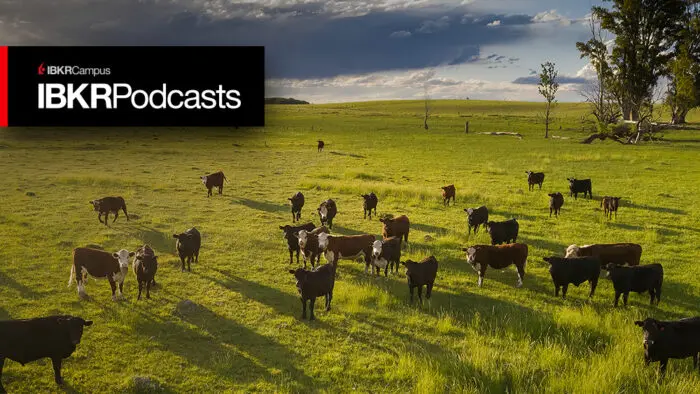A seemingly new product has options markets buzzing. So-called Zero Days to Expiration, or “0DTE,” options, have spurred historic trading volumes alongside a wave of concerned commentary. Any financial innovation brings a rightful share of concerns, but these new contracts are evolutionary, not revolutionary.
It’s more like the casinos opened a new set of tables rather than introduced truly new games. Remember, every option eventually becomes zero-dated on expiration day. What differs is the frequency of expirations, not the expirations themselves.
Weekly expirations were first listed in 2005, and there have been thrice-weekly expiries in leading index and exchange-traded-fund options since 2016. It was inevitable that Tuesdays and Thursdays would be added to the mix, creating a full slate of daily expirations.
When the Cboe Options Exchange announced its intention to fill in the expiration calendar, it acknowledged that as of last February, 46% of options volume was made up of contracts expiring in five days or less. The trend toward ever-shorter options has been under way for quite some time. There is nothing specifically dangerous or systemically risky about 0DTE options, even if they have facilitated potentially unhealthy levels of aggressive speculation.
The new daily expirations made little stir when first listed last April, yet have recently become a sensation. The reason is surprisingly simple. Markets were falling throughout most of 2022 but have been rallying sharply for most of this year. Speculators are more active when markets rise, and they adopted the new tools available to them.
Much of the recent popularity of options speculation occurred when sports gamblers recognized that short-term options trading has a similar payoff structure. Options and sports bets both offer the potential for leveraged returns on short-term wagers with finite expenditures.
That said, options trading offers a significant advantage over sports or casino betting: In an honest casino or a sporting match, the bettors have no ability to influence the outcome on the field or at the table.
An imbalance of bettors makes the roulette wheel no more likely to end on red or black. But if enough traders buy call options in sufficient quantities, they can push markets in their desired direction. A wave of aggressive call buyers can force those who sold the options to hedge by buying the underlying stocks or ETFs. In the extreme, this can become a feedback loop of positive momentum, creating a microburst of volatility. (The reverse can happen with puts, but it rarely does. Speculators prefer calls.)
The preferred strategy is deceptively simple. Traders, hoping for a rally, load up on slightly out-of-the-money calls expiring that afternoon. In the case of the SPDR S&P500 ETF (ticker: SPY) or the Invesco QQQ Trust (QQQ), the options are struck at a dollar or two above the current price of the ETF. In the morning, these might be worth about 90 cents. If the ETF quickly rallies above the strike, the trader may be able to sell the call for $1.40 or more, yielding a high-double digit percentage return.
When there is sufficient momentum, the traders can roll the proceeds of their profitable trades into the next strike, hoping to repeat their success. If the strategy fails, the calls finish out of the money, worthless. These are the fastest-decaying options and represent a significant hurdle for buyers.
It is doubtful that the original proponents of exchange-traded options could expect that a poorly understood niche product would eventually become a mainstream tool with tens of millions of contracts changing hands daily. But they knew what calls and puts were, and they knew that every option eventually has zero days to expiration. 0DTE options are simply the newest way to make options trading more accessible—nothing more, nothing less.
—
Originally Posted February 23, 2023 – Zero-Dated Options Are Hot—but Not Hazardous
Disclosure: Interactive Brokers
Information posted on IBKR Campus that is provided by third-parties does NOT constitute a recommendation that you should contract for the services of that third party. Third-party participants who contribute to IBKR Campus are independent of Interactive Brokers and Interactive Brokers does not make any representations or warranties concerning the services offered, their past or future performance, or the accuracy of the information provided by the third party. Past performance is no guarantee of future results.
This material is from Barron's and is being posted with its permission. The views expressed in this material are solely those of the author and/or Barron's and Interactive Brokers is not endorsing or recommending any investment or trading discussed in the material. This material is not and should not be construed as an offer to buy or sell any security. It should not be construed as research or investment advice or a recommendation to buy, sell or hold any security or commodity. This material does not and is not intended to take into account the particular financial conditions, investment objectives or requirements of individual customers. Before acting on this material, you should consider whether it is suitable for your particular circumstances and, as necessary, seek professional advice.
Disclosure: ETFs
Any discussion or mention of an ETF is not to be construed as recommendation, promotion or solicitation. All investors should review and consider associated investment risks, charges and expenses of the investment company or fund prior to investing. Before acting on this material, you should consider whether it is suitable for your particular circumstances and, as necessary, seek professional advice.
Disclosure: Options Trading
Options involve risk and are not suitable for all investors. Multiple leg strategies, including spreads, will incur multiple commission charges. For more information read the "Characteristics and Risks of Standardized Options" also known as the options disclosure document (ODD) or visit ibkr.com/occ




















